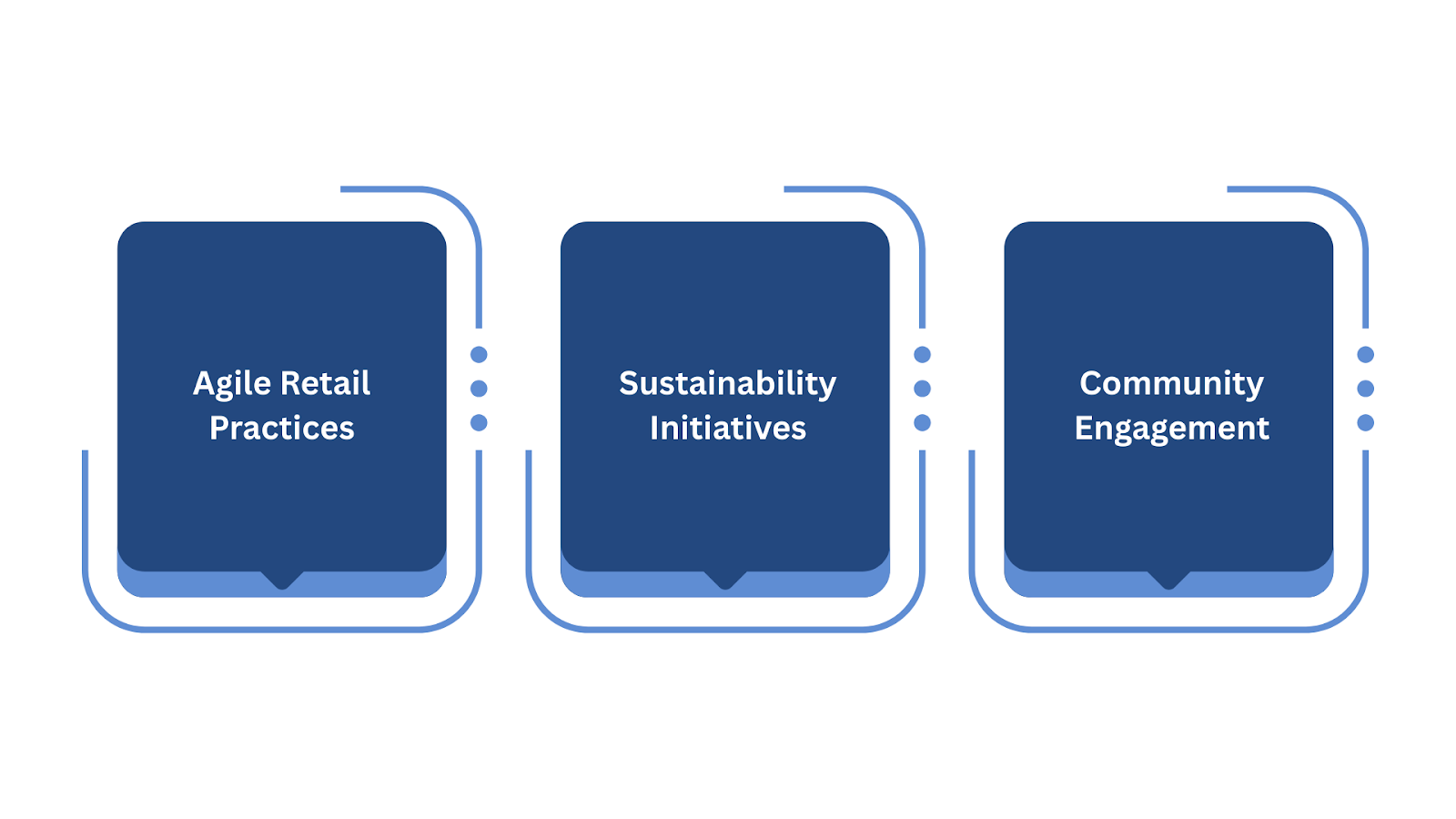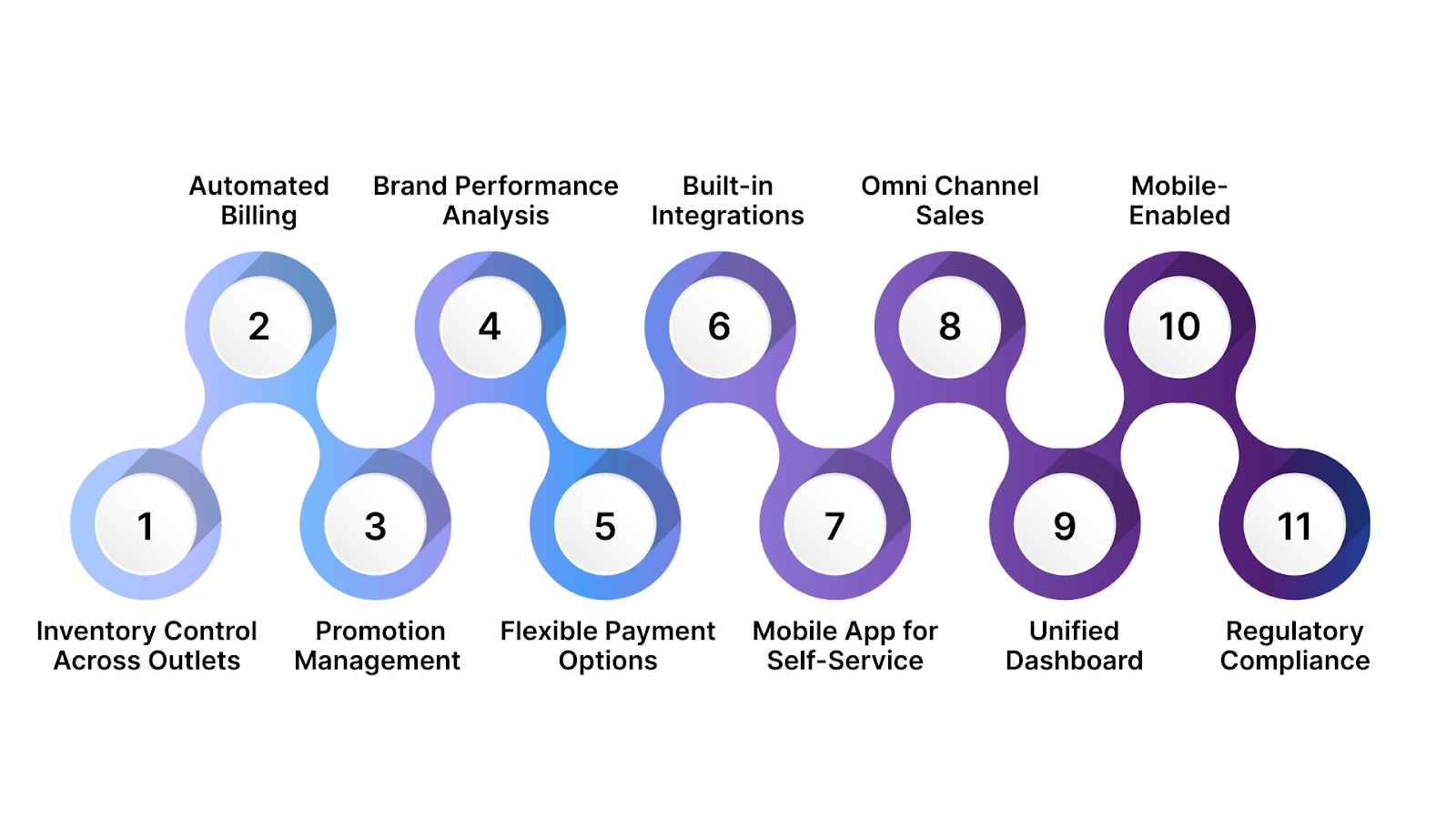
The retail sector in Saudi Arabia is undergoing a quick and unprecedented transformation, fueled by the ambitious Vision 2030 initiative aimed at diversifying the economy beyond oil dependence. Valued at USD 282.2 billion in 2024 and projected to reach USD 402.7 billion by 2033 with a CAGR of 4.03%, the market is expanding swiftly with growing consumer spending driven by a youthful, tech-savvy population.
Both local and international brands are intensifying competition to capture the attention of a rising consumer base that increasingly demands convenience, personalization, and digital shopping experiences. However, this dynamic growth comes with a range of challenges for retailers, including regulatory compliance, supply chain efficiency, and adjusting to growing consumer preferences.
This article explores key retail issues faced by businesses in Saudi Arabia and presents actionable strategies for overcoming these challenges to sustain competitiveness and improve customer satisfaction.

The foundation of any successful retail operation lies in its ability to manage resources effectively, streamline operations, and minimize disruptions. Saudi Arabia’s growing retail sector faces significant operational challenges that need careful attention.
Let’s explore the operational challenges in retail:
One of the most persistent issues facing retailers is effective inventory management. As the retail market expands and demand for products increases, maintaining accurate stock levels becomes increasingly complex.
Retailers in Saudi Arabia, particularly in cities like Riyadh, Jeddah, and Dammam, are seeing more customers both in-store and online, leading to a higher volume of transactions and inventory turnover.
Solution:
Retailers can implement real-time tracking systems to monitor stock levels, prevent overstocking or stockouts, and guarantee products are available when customers need them. Technologies like RFID and barcode scanning help keep track of inventory across multiple locations.
Additionally, adopting a Just-In-Time (JIT) inventory system can minimize waste and lower the cost of goods sold, helping retailers maintain higher profit margins.
Saudi retailers, like those around the world, face significant challenges due to supply chain disruptions. Whether it’s due to global factors like the COVID-19 pandemic or local logistical inefficiencies, retail supply chains often face delays, increasing costs, and leading to stockouts that impact sales and customer satisfaction.
Solution:
Retailers can build more resilient supply chains by diversifying suppliers, using local sourcing, and using technology to predict and manage disruptions. Advanced analytics and predictive algorithms allow businesses to forecast demand and plan their procurement strategies accordingly.
In Saudi Arabia, where many products are imported, establishing alternative supply routes or working with multiple suppliers for the same products can reduce risk and improve reliability.
High turnover rates and staffing shortages continue to challenge the retail sector. Retail positions often face seasonal spikes in demand, making it difficult for businesses to manage their workforce efficiently.
In Saudi Arabia, where the retail industry is expanding quickly, there is a growing demand for skilled workers to manage stores, logistics, and customer service.
Solution:
Retailers can improve employee retention by offering competitive wages, benefits, and opportunities for career development. In addition, promoting a positive work environment, offering flexible working hours, and providing proper training can help reduce turnover and improve employee satisfaction.
Retailers should also consider using workforce management software to schedule staff effectively and avoid overstaffing or understaffing during peak periods.
Also Read: Best Accounting Software For Your Online Retail Business


In a competitive retail landscape, customer experience is everything. The rise of e-commerce and changing consumer expectations have made it more important than ever for retailers to provide a smooth and personalized experience both in-store and online.
Let’s explore the customer experience issues in retail:
Inconsistent service across different locations or sales channels is one of the most common customer complaints. When a brand’s service standards vary from one store to another, customers feel frustrated and may choose to shop elsewhere. This problem is particularly significant for large retailers with multiple locations in Saudi Arabia, as they face the challenge of maintaining consistent service quality across the Kingdom.
Solution:
Retailers can address this issue by standardizing service protocols and providing ongoing training for employees. Using performance management tools and mystery shoppers can help monitor service quality and identify areas of improvement.
Additionally, implementing clear communication channels between the head office and stores can make sure that service expectations are met consistently across all locations.
As more Saudi consumers shop online, the demand for an omnichannel shopping experience, where customers can smoothly transition between online and in-store shopping, has never been higher.
Retailers face the challenge of integrating their online platforms with physical stores, making sure that inventory, pricing, and promotions are aligned across all touchpoints.
Solution:
Retailers must invest in integrated systems that allow for real-time synchronization of online and offline data. For example, a customer should be able to check online for product availability and have it ready for pickup at a nearby store. Implementing a robust CRM system that collects data from both channels will also help create a more personalized shopping experience.
Integration is not only essential for customer convenience but also for improving operational accuracy. Recently, one of our retail clients reported a 50% increase in billing accuracy and revenue after automating the connection between their billing system and payment terminals, eliminating manual errors and revenue leakages through tighter system integration.
In Saudi Arabia, where e-commerce is growing quickly, it’s essential for brands to offer a cohesive and smooth experience across all touchpoints.
Today’s consumers expect personalized shopping experiences. Whether it’s through targeted offers, personalized recommendations, or loyalty programs, customers in Saudi Arabia are becoming increasingly accustomed to personalized service. Retailers that fail to offer this can quickly lose their competitive edge.
Solution:
Retailers should use customer data analytics to tailor their offerings and promotions. By tracking customer preferences, purchase history, and browsing behavior, businesses can create personalized experiences that resonate with customers.
Implementing loyalty programs and sending targeted marketing messages based on consumer data will also increase engagement and drive repeat business.

Also Read: The Ultimate Guide to Top Retail ERP Software Solutions

As the retail industry in Saudi Arabia continues to embrace digital transformation, businesses are faced with new challenges related to technology adoption, cybersecurity, and data management.
Let’s explore the technological challenges in retail:
With the fast-paced growth of e-commerce, retailers in Saudi Arabia are under pressure to adopt new technologies such as Artificial Intelligence (AI), Internet of Things (IoT), and cloud computing to streamline operations and improve customer experiences. However, many retailers still face barriers such as high implementation costs, a lack of skilled personnel, and resistance to change.
Solution:
Retailers can overcome these barriers by investing in scalable, cloud-based solutions that can grow with their business. Partnering with technology providers who specialize in retail solutions can help smooth the adoption process. Additionally, providing ongoing training and support to staff makes sure that new technologies are utilized to their full potential.
As retailers increasingly rely on digital platforms for both sales and customer engagement, cybersecurity has become a critical concern. Protecting customer data and preventing cyberattacks are essential to maintaining consumer trust and regulatory compliance. With the fast growth of e-commerce in Saudi Arabia, this issue is becoming more pressing.
Solution:
Retailers should implement strong cybersecurity measures, including encryption, multi-factor authentication, and secure payment systems. Regular audits and updates to security protocols can help prevent vulnerabilities. Educating employees and customers on cybersecurity best practices also plays a key role in mitigating risks.
With vast amounts of customer data generated daily, retailers need effective systems to manage and analyze this data. In Saudi Arabia, where both physical and online retail channels are booming, the ability to manage and use data is essential for maintaining a competitive edge.
Solution:
Retailers can implement advanced data management systems that provide real-time insights into sales trends, customer behavior, and inventory levels. Using predictive analytics, businesses can forecast demand, optimize stock levels, and improve decision-making. Data-driven insights also allow for more effective personalized marketing and promotional strategies.

In addition to addressing operational, customer experience, and technological issues, retailers in Saudi Arabia must adopt strategic solutions to stay competitive in this quickly growing market.
To respond to the ever-changing retail environment, Saudi retailers must embrace agility. This means being flexible enough to adjust to shifting consumer preferences, market trends, and economic conditions. Agility is also crucial for managing crises, such as supply chain disruptions or economic downturns.
Solution:
Retailers can adopt agile practices by implementing flexible business models that allow for quick adjustments to product offerings, pricing strategies, and customer engagement tactics. Creating a culture of innovation and encouraging quick decision-making will help businesses respond to market changes effectively.
With increasing awareness of environmental issues, sustainability has become a key consideration for consumers in Saudi Arabia. Retailers that embrace sustainable practices can attract eco-conscious customers and align with the Kingdom’s broader sustainability goals under Vision 2030.
Solution:
Retailers should focus on reducing waste, sourcing products responsibly, and offering eco-friendly options. Additionally, retailers can improve energy efficiency in their operations and invest in sustainable packaging. By aligning with sustainable practices, businesses not only contribute to environmental protection but also improve their brand image.
In Saudi Arabia, consumers are increasingly looking to support brands that engage with their local communities. Retailers that invest in community initiatives or support local causes can build stronger relationships with their customers, encouraging loyalty and trust.
Solution:
Retailers can engage with local communities through charity events, partnerships with local organizations, or promoting Saudi culture and heritage. By supporting causes that matter to their customers, retailers can create a loyal customer base that values their social responsibility efforts.
Also Read: Best Accounting Software For Your Online Retail Business

HAL ERP empowers retailers to tackle key operational challenges with AI-driven tools and real-time data, guaranteeing greater efficiency, cost savings, and optimized performance across the board.
Al Homaidhi Group, a leading luxury retailer in Saudi Arabia, faced challenges with sales reporting, inventory tracking, and customer experience. Implementing HAL Retail streamlined operations, providing real-time sales insights, dynamic pricing, and integrated online and offline inventory. This led to a 61% improvement in efficiency, SAR 70 million in savings, and a 145% ROI, while improving customer engagement with flexible payment options and digital billing.
Let’s look at how HAL Retail helps you get ahead:
Here’s how HAL Retail helps retailers streamline operations:
HAL ERP helps retailers in Saudi Arabia streamline operations, improve customer engagement, and stay compliant with ease. By using real-time data and AI, retailers can reduce costs, improve efficiency, and boost profitability. Book a demo today!

1. What are the most common challenges faced by retailers in Saudi Arabia?
Retailers in Saudi Arabia often face inventory management issues, supply chain disruptions, staffing challenges, and the need to integrate both online and offline channels for a smooth customer experience.
2. How can retailers improve customer experience in the growing market? Retailers can improve customer experience by offering personalized services, integrating omnichannel solutions, and guaranteeing consistent service quality across all touchpoints.
3. Why is inventory management so important in retail?
Effective inventory management makes sure that retailers maintain the right stock levels, prevent overstocking or stockouts, and meet customer demand without incurring unnecessary costs.
4. How can technology help solve retail challenges?
Technologies like AI, cloud-based ERP systems, and data analytics help streamline operations, predict demand, manage resources efficiently, and improve customer engagement in real-time.
5. What are the benefits of adopting sustainable practices in retail?
Sustainability helps retailers meet customer demand for eco-friendly products, comply with local regulations, and improve brand loyalty, ultimately contributing to long-term profitability.